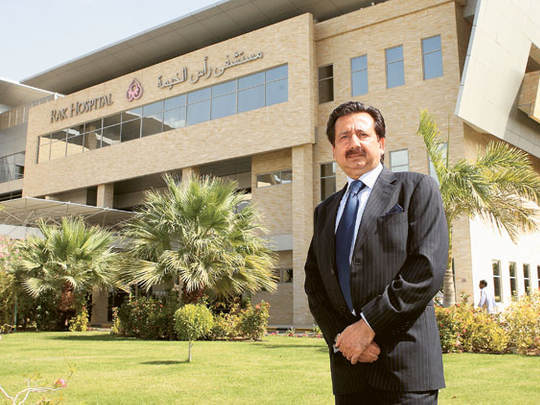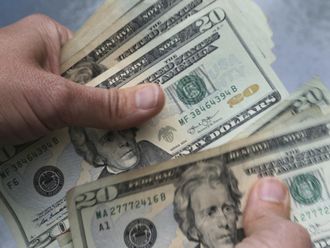
Dubai: With its health care, hospitality and airline pulling their weight in a combined effort, Ras Al Khaimah is all set to raise its profile as a medical tourism destination.
RAK Hospital, the northern emirate's largest privately owned health care facility, is close to unveiling a deal with RAK Airways under which patients can fly in free of charge for treatment. Another one with Etihad Airways is also on the cards, according to a top official with the health care operator.
"When you talk about medical tourism, you can't just talk about the medical aspect alone," said Raza Seddiqi, executive director at ETA Star Healthcare. "Patients want to go to a place that can take care of the tourism side as well.
"That's the reason why a good hospitality environment has to be there. Medical tourism can take off only when health care meets hospitality."
The emirate has already been making headway as a tourism destination. According to Mario Volpi, head of sales and leasing at Cluttons Dubai, "Ras Al Khaimah is reinventing itself with the advent of expanded landing rights to its airport, to broader areas of Europe and Russia especially. This is bringing in more tourists from Russia, the UK and Italy specifically."
Now, by promoting itself as a medical tourism destination, the emirate can hope to break into other feeder markets.
Flying link
This is why there is a lot riding on the deal with RAK Airways. Medical tourism in the UAE, according to various forecasts, could become a $17 billion (Dh62.5 billion) industry by 2015. For that to happen, the UAE's health care operators must spread the message that patients can get quality treatment at optimum cost compared with destinations such as India, Thailand and others.
Currently, the average cost of heart bypass surgery in the UAE is $15,000 to $18,000 compared with $18,500 in Singapore, $15,000 in Thailand, between $12,000 to $15,000 in India and $10,000 to $12,000 in Malaysia.
The rule of thumb in the medical tourism industry is that 40 per cent of travellers go for the advanced technology, 32 per cent seek better health care, 15 per cent opt for faster medical services, while only 9 per cent favour lower costs as the reason.
By providing for its clients to travel free to Ras Al Khaimah, RAK Hospital is making a more compelling case for itself on the cost factor.
"The intention is to provide American or international quality health care at Asian prices," said Seddiqi. "Our main target clientele is visitors from the CIS and Africa, the latter group currently meeting their medical requirements by visiting Thailand or India.
Pakistan market
"We could also tap into demand for medical services from Pakistanis, who currently travel to India for their requirements."
Apart from subsidising the travel, RAK Hospital has had an arrangement with the hotel operator Cove Rotana for three months. "We put them up at the resort before their admission to the hospital," said Seddiqi. "And because we don't want to keep patients in-hospital for a long time, once the treatment is done, the package allows them to recuperate back at the resort."
Other hotels in the emirate could also be brought into the package. By streamlining its efforts, Ras Al Khaimah looks set to bask in the limelight offered by medical tourism.
Similar facilities planned in Dubai and Abu Dhabi
ETA Star Healthcare is planning to create specialty hospitals in Dubai and Abu Dhabi similar to the one in Ras Al Khaimah. Progress on identifying the partners and the land could be made in the next six months, said a top official.
To fund the proposed projects, the operator would prefer Islamic financing "because it's the ideal form for a hospital given that it's asset-based lending," said Raza Seddiqi.
The RAK Hospital, set up at a cost of Dh100 million, should turn a profit this year, the fourth year of operations. Plans are afoot to raise the capacity to 150 beds, which would mean costs of Dh25 million.
Plus a network of clinics would be created on investments of Dh30 million. All this works well for the growing resident base of the emirate. "The RAK Free Zone is doing good business and there is a good mix of companies that have either set up there or have opened a second operation in the emirate," said Mario Volpi of Cluttons.
"In the past the construction industry was the predominant driver for companies setting up home in the emirate."
On the residential side, "Selective stabilisation is definitely the buzz-word and the few developments that have the infrastructure and facilities are definitely improving. The popular development of Al Hamra is launching its second phase; so while we are not talking about a boom there are some positive noises coming out of Ras Al Khaimah."











